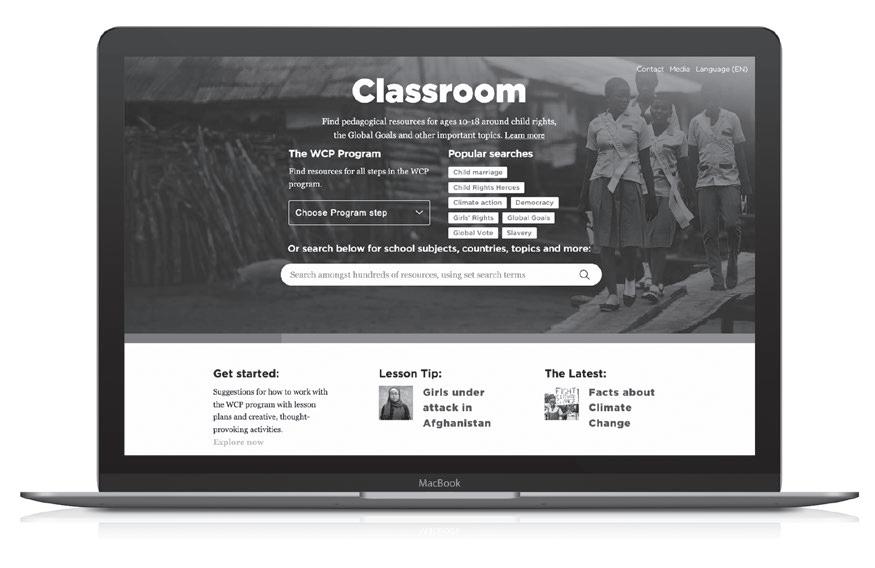
1 minute read
Democracy
Let the students study the history of democratic development in the world, and how democracy works where they live and in their countries. This is particularly important to do before their own Global Vote, when children vote for their Child Rights Heroes.
Explain the basic principles of democracy, as outlined in The Globe on p. 48–50. Tell the students that they will later conduct a democratic election, using the same rules and principles that should be applied to local elections in your village or town and national elections in your country. Talk about the importance of running a fair election campaign, without corruption or lies, what is sometimes called fake news. Give examples of how adult elections can sometimes be manipulated. Powerful people may try to influence how regular people vote, by offering money or threatening violence. In a fair election, no-one should influence your decision!

Perhaps your students want to organize their own election campaign, including making election posters, writing speeches and role playing as the candidates. This is a good way to make sure that all children know enough about what all the candidates have achieved for children and what they want to do in the future.


Follow The Timeline
Use the timeline in The Globe (p. 48–50) describing how democracy has developed in the world over the centuries.

1. Study the timeline in The Globe together. Let students read sections out loud to one another, make comments and ask questions.
2. Based on the different types of democratic systems explained in The Globe, ask the students if they know which type of system is used in your country, but also in your local government.
3. Split learners up into pairs/ groups and let them work together on, for example:
• Adding things on the timeline that they think are missing, for example from their own country.
• Making a timeline of the democratic development in your country.
• Picking one event or person mentioned on the timeline, such as Nelson Mandela, and the first democratic election in South Africa – discuss and find out more about this particular event and/or person together.
4. Gather the class and reflect together. Ask each group or pair to share what they have talked about, and let students ask questions and make comments. Also ask students to reflect on the future where they live and in their country. Tell them that some people think that children should be allowed to vote in local and national elections. How do they feel about that?










